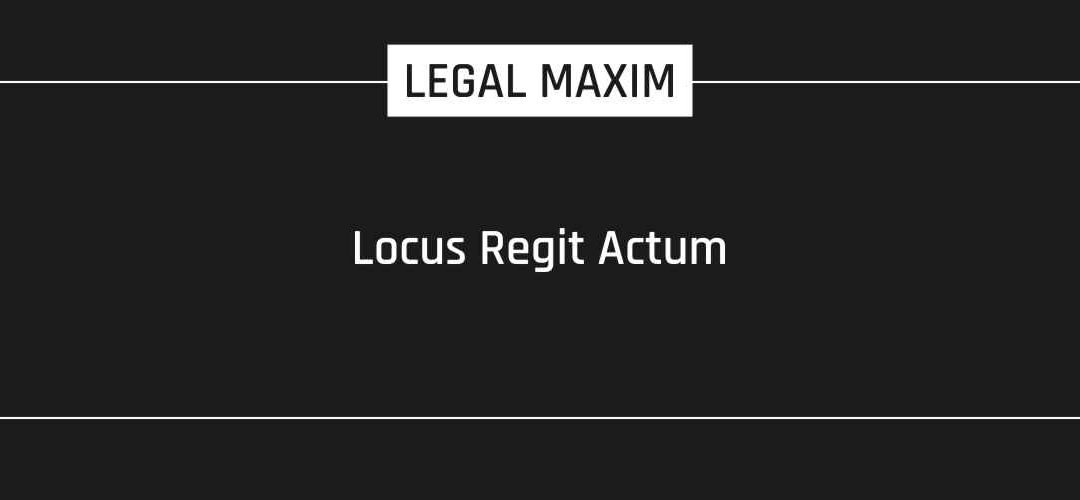Literal Meaning
The place governs the act.
Origin
Latin
Explanation
It is considered to be a maxim for resolving the conflicts of law. The meaning of the maxim is that the place where a contract is entered into governs the manner in which it shall be formally solemnized. The elasticity of the rule depends on the following facts:
- Place where the relevant facts have occurred.
- What are the relevant facts?
- To which transactions can the rule be applied?
- Does the local law govern exclusively?
Although, the above maxim is not readily accepted in the common law but is well-entrenched in the civil law. The law of the place of the act determines absolutely, the forms of authentication. The law which governs the act as to its substance can prescribe the authentication.
Case Laws
In Parwatawwa vs. Channawwa, the Karnataka High Court referring to Berthiaume v. Dastous, stated that “If there is one question better settled than any other in international law, it is that as regards “marriage – putting aside the question of capacity – locus regit actum.” The maxim means that the validity of an act depends on the law of the place where it is done. The noble Lord thus made it clear that capacity did not depend upon the law of the place where the marriage was celebrated.”
In Peter Philip Saldanha And Ors. vs Anne Grace Saldanha, the Bombay High Court referring to the maxim ‘locus regit actum’ held that “If marriage is good by the laws of the country where it is effected, it is good all the world over, no matter whether the proceeding or ceremony which constituted marriage according to the law of the place would not constitute marriage in the country of the domicile of one or other of the spouses. If the so-called marriage is no marriage in the place where it is celebrated, there is no marriage anywhere, although the ceremony or proceeding, if conducted in the place of the parties’ domicile, would be considered a good marriage. These propositions are too well-fixed to need many quotations.”
